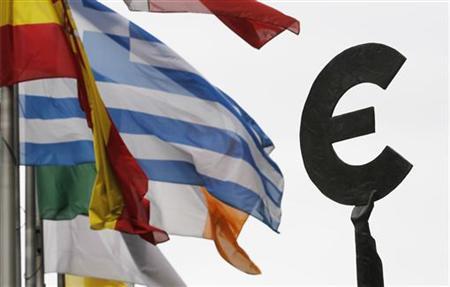It's the volatility, stupid.
Last week, as European banks seemed perilously close to a credit freeze, six major central banks rushed in to ease interbank borrowing. The stock markets reacted buoyantly. By Monday, however, Standard & Poor's placed 14 euro-zone nations on tap for possible credit-rating downgrades. Tomorrow, European Union leaders are getting together in Brussels in an urgent attempt to keep their economic ties from unraveling.
To be sure, the overseas economic crisis poses serious financial risks for many U.S.-based and managed companies if it spreads to these shores. Yet for many others — particularly small and mid-sized firms with global customers — it's the volatility spawned by the roller-coaster events in Europe that's the real threat.
To the CFOs of such firms, the threat, while worrisome, is indirect. While they haven't yet seen direct hits to their businesses, they are observing that their overseas clients have become cautious about buying products they might have snapped up before. Days or weeks may also pass before a euro-zone purchaser will sign a long-term contract.
But there are tricks to surviving such periods of volatility, interviews with finance chiefs suggest. An overriding theme: during times of economic instability, inject as much stability into your company as you can. Below are three such approaches.

Curb your need for working capital. Roger Moody, CFO of Nanosphere, a Nasdaq-traded firm that develops and markets a platform of molecular diagnostic testing tools, worries that the stock market volatility created by the European crisis will make investors fearful and thus restrict the flow of capital. "Emerging companies and technologies need capital to grow. [The economic crisis] makes it difficult to raise money in new-issuance equity markets," he says.
Further, the company has been looking for revenue growth overseas. Fearing a worsening of the crisis, purchasers at hospitals in southern Europe have grown more cautious about buying products like Nanosphere's. Squeezed on the revenue side, the company is looking to curb costs. The situation "certainly causes us to manage our working capital as tightly as possible," Moody says.
In line with that goal, the firm plans to offload the cost of some of its capital assets without overly burdening its cash-strapped customers. Moody compares the company's system to a blade and a razor, in which the "blade" is a disposable cartridge used for each diagnostic test and the "razor" is an instrument which requires a capital outlay of about $50,000.
Nanosphere has three alternatives concerning the razor. Two of the choices, however, represent an increase in its working capital requirement and that of its customers, respectively: it can own and rent the equipment to the customer or the customer can purchase it outright.
The company, however, is using a third alternative to manage its working capital. That involves bringing in "a third-party leasing company [that] will actually hold the asset on its balance sheet, and that relieves both our working capital requirement as well as [that of] our customers or distribution partners," says Moody.
Nanosphere has taken that step in the United States and will explore doing it in Europe. "The question is: Will we be able to find the credit that would [enable us] to provide that kind of facility," the finance chief adds.
Spread out your revenues. Bill Korn, CFO of Antenna Software, a mobile phone specialist firm backed by private equity and venture capital money, acknowledges that uncertainty about the crisis may have caused some large companies to delay signing contracts with his company.
But Korn sleeps easily because he knows that Antenna operates on a "recurring revenue" model. "I'm signing contracts that are multiyear, and I'm getting a certain amount per month for three years or five years. Or even if I'm getting the money up front, I'm still counting it and recognizing over time," he says.
Thus, the company doesn't have a lot riding on whether or not it signs a big new contract. "When we start a quarter, virtually 90% to 95% of our revenue is there, even if we don't do a thing. That also doesn't hurt our forecasting and predictability," Korn adds.
Go debt-free. Three years ago, when Clyde Hosein became finance chief of Marvell Technology Group, the integrated circuits firm had a fair amount of debt. Now, the company owes nothing — and Hosein likes that just fine. "The debt market is more volatile than I would like," he says. "With covenants and restrictions and the like, it gets too distracting."
In addition to its lack of debt, the CFO notes, Marvell generates a great deal of cash — an average of 25 cents of every dollar of revenue in free cash flow. Armed with such balance-sheet strengths, the company is pursuing a counter-cyclical strategy. "These times of uncertainty are a good time for companies to invest," according to Hosein.
Thus, with many firms sitting on the sidelines waiting for a resolution of economic uncertainty, the company is putting money into developing new technology and hiring, according to the finance chief. Over the course of the current calendar year, the 6,700-employee firm has added more than 1,000 workers. Further, Marvell plans to pursue a "moderately acquisitive" strategy of buying low in today's uncertain merger market, Hosein says.
Source:CFO Author:David M. Katz
 English
English  Vietnamese
Vietnamese 
